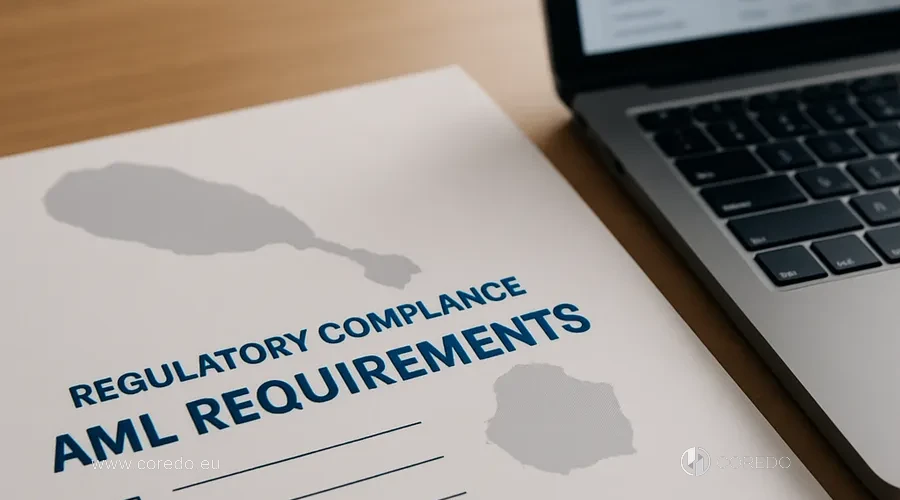In 2024, more than 60% of new international business companies are registered in jurisdictions with zero corporate tax and a flexible regulatory system, and St Kitts and Nevis consistently ranks among the top five such destinations according to Global Finance. So why, despite tightening global AML requirements and growing attention to transparency, does this Caribbean jurisdiction become the strategic choice for European and Asian entrepreneurs? What are the real opportunities and risks, and what lies behind the façade of “offshore simplicity”?
In recent years the team COREDO has repeatedly encountered cases where classic offshore solutions stopped working due to changes in international regulation, and businesses needed not just company registration but a comprehensive strategy for tax optimization, asset protection and lawful scaling. In this article I will examine in detail why the St Kitts and Nevis international business company is not only a tool for reducing tax burden, but also a platform for sustainable development, investment mobility and effective corporate risk management.
If you want not a superficial overview but a structured guide with practical recommendations, case studies and strategic ideas: I recommend reading the article to the end. Here you will find answers to the most pressing questions that managers and entrepreneurs face when choosing a jurisdiction, registering a company, obtaining financial licences and complying with AML requirements.
International business company in St Kitts and Nevis

international business company in St Kitts and Nevis opens access to unique opportunities for conducting business and investing on the Caribbean islands, combining a stable economy and attractive conditions for international activity. The geography and economic specifics of St Kitts and Nevis create advantages that make the country appealing to entrepreneurs and foreign investors.
Geography and economy of St Kitts and Nevis
St Kitts and Nevis is an independent state in the eastern Caribbean Sea with a stable political system and one of the region’s most liberal economies. The country’s economic policy is focused on attracting foreign investment, developing the financial sector and creating favorable conditions for international business. The Caribbean region has traditionally been viewed as a platform for offshore companies due to the combination of tax incentives, a flexible regulatory environment and a strategic location between North and South America, as well as proximity to markets in Europe and Asia.
Legal framework of corporate law in St Kitts and Nevis
The jurisdiction of St Kitts and Nevis is governed by modern corporate legislation based on English law, taking into account international standards of corporate governance and compliance. The International Business Companies Act (IBC Act) provides transparency of procedures, flexibility of corporate structures and protection of the interests of foreign investors.
Company registration in St Kitts and Nevis, step-by-step

company registration in St Kitts and Nevis, step-by-step allows foreign entrepreneurs to open a business remotely while complying with local rules and international transparency standards. At each stage it is important to take into account requirements for corporate structure, documentation and licensing to ensure the legality and protection of the company’s interests in this jurisdiction.
Requirements for IBCs in St Kitts and Nevis
Key aspect: compliance and AML in St Kitts and Nevis. The country’s legislation requires KYC procedures, verification of sources of funds and identification of beneficiaries. The solution developed by COREDO enables automation of data collection and processing by integrating LegalTech tools to speed up checks and minimize errors.
Registration and licensing: procedure and rules
The company registration process in St Kitts and Nevis includes several stages:
- Preparation and filing of the constitutive documents (Articles of Incorporation, Memorandum of Association).
- Reservation of a unique company name.
- Appointment of a director and a secretary.
- Opening a corporate bank account (personal presence is often required).
- obtaining licenses (if necessary – for financial, payment, crypto and forex services).
Legal support for offshore business
Best practices for legal support of companies in St Kitts and Nevis include regular monitoring of legislative changes, integration of LegalTech solutions to automate reporting, and compliance with international AML and KYC standards. The COREDO team implements digital platforms for managing corporate documentation, enabling clients to respond promptly to regulator requests and maintain a high level of transaction transparency.
Business advantages in the jurisdiction of St Kitts and Nevis

Business advantages in the jurisdiction of St Kitts and Nevis reflect a unique combination of a favorable business environment, flexible regulation and asset security. This Caribbean jurisdiction attracts entrepreneurs with favorable conditions for international activities and wide opportunities for tax planning.
Thanks to these advantages, special attention should be paid to tax incentives and the possibilities of structuring international companies, which we will consider further.
Tax incentives and planning
One of the main advantages of registering a company in St Kitts and Nevis is the absence of taxes on income, capital and inheritance for international business companies. This creates unique opportunities for tax optimization, especially for holding structures managing assets across different countries. The impact of St Kitts and Nevis legislation on tax optimization is confirmed by COREDO cases: clients were able to reduce their overall tax burden by 30–40% through proper business structuring and the use of international tax treaties.
Citizenship by investment (CBI) and business opportunities
St Kitts and Nevis is one of the few countries offering a Citizenship by Investment (CBI) program, allowing one to obtain citizenship through investments in real estate or government funds. For business owners, this is not only a tool to legitimize assets but also a way to expand international mobility, obtain a second passport and access new markets.
Offshore registration to scale the business
Offshore registration in St Kitts and Nevis opens wide opportunities for scaling a business, from creating international holdings to managing investment funds and trusts. Asset management and asset protection are implemented through trust structures that provide a high level of confidentiality and protection from external risks.
Thus, offshore registration in St Kitts and Nevis provides businesses with significant flexibility and reliable asset protection, thanks to well-designed corporate and trust structures.
Let’s move on to examining the requirements and risks associated with AML and compliance rules in this jurisdiction.
AML and Compliance in St Kitts and Nevis: requirements and risks

Mandatory AML and KYC procedures for international business
Minimizing legal and financial risks
The main risks of registering a company in St Kitts and Nevis are associated with possible reputational losses, the tightening of international sanctions and changes in financial regulations. Corporate risk management requires regular audits, monitoring of legislative changes and integration of anti-corruption measures.
International standards: FATCA and CRS — what you need to know
St Kitts and Nevis actively participates in international initiatives for transparency of financial operations — including FATCA and CRS. Companies are required to provide data on beneficiaries, sources of funds and transactions, which helps reduce the risk of tax claims and ensure compliance with global standards.
Corporate governance in St Kitts & Nevis

corporate governance in St Kitts & Nevis – is an effective system of oversight and management, ensuring transparency and protection of the interests of both shareholders and all stakeholders. In this jurisdiction corporate governance combines the flexibility of offshore structures with compliance with international standards, which is especially important for holding companies and multi-level business models.
Corporate governance in holding companies
The corporate law of St Kitts and Nevis allows the creation of flexible holding structures, integration of trusts and foundations, which significantly expands opportunities for asset management and optimization of corporate processes. Management of corporate risks is implemented through the introduction of compliance policies, regular audits and integration of LegalTech solutions.
Procedures for the inheritance of corporate rights
The specifics of inheritance and transfer of business in St Kitts and Nevis include the possibility of using trust structures, which provides asset protection, confidentiality and flexibility in managing corporate rights. Business transfer procedures are transparent, regulated by national legislation and comply with international standards.
Asset protection through trust structures
Trust and foundation structures are a key instrument for protecting ownership and managing assets in St Kitts and Nevis. They allow diversification of risks, ensure confidentiality and create a sustainable platform for long-term business development.
Recommendations and key takeaways for entrepreneurs
- Main advantages of the St Kitts and Nevis jurisdiction: no corporate taxes, a flexible legal framework, a citizenship-by-investment program, opportunities for scaling and asset protection.
- Key risks: tightening international sanctions, transparency requirements, the need to comply with strict AML and KYC standards.
- Business registration and support strategies: integration of LegalTech solutions, regular audits, use of trust structures, automation of compliance processes.
- AML and tax optimization: automation of transaction monitoring, implementation of compliance policies, use of international tax agreements.
- Citizenship program: expanded international mobility, optimization of tax residency, legalization of assets.
- Risk control and partner selection: cooperation with licensed intermediaries, regular monitoring of legislation, implementation of anti-corruption measures.
Comparison of the St. Kitts and Nevis jurisdiction with other offshore jurisdictions
| Aspect | St Kitts and Nevis | Cyprus | British Virgin Islands |
|---|---|---|---|
| Taxation | No taxes on income, capital, inheritance | Low taxes | No taxes |
| Citizenship program | Yes, CBI with investments | No | No |
| AML and Compliance | Strict requirements, compliance with international standards | Moderate requirements | Moderate requirements |
| Registration time | Fast (a few weeks) | Average | Fast |
| Political stability | High | High | Moderate |
Choosing the St Kitts and Nevis jurisdiction: it is a strategic decision that requires thorough analysis, professional support and the integration of modern management tools. COREDO’s practice shows: a comprehensive approach not only allows minimizing risks, but also unlocks new opportunities for international business, sustainable development and effective asset protection.